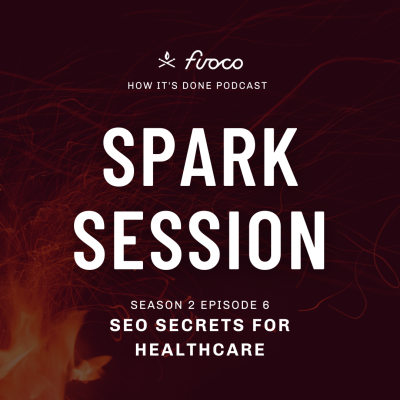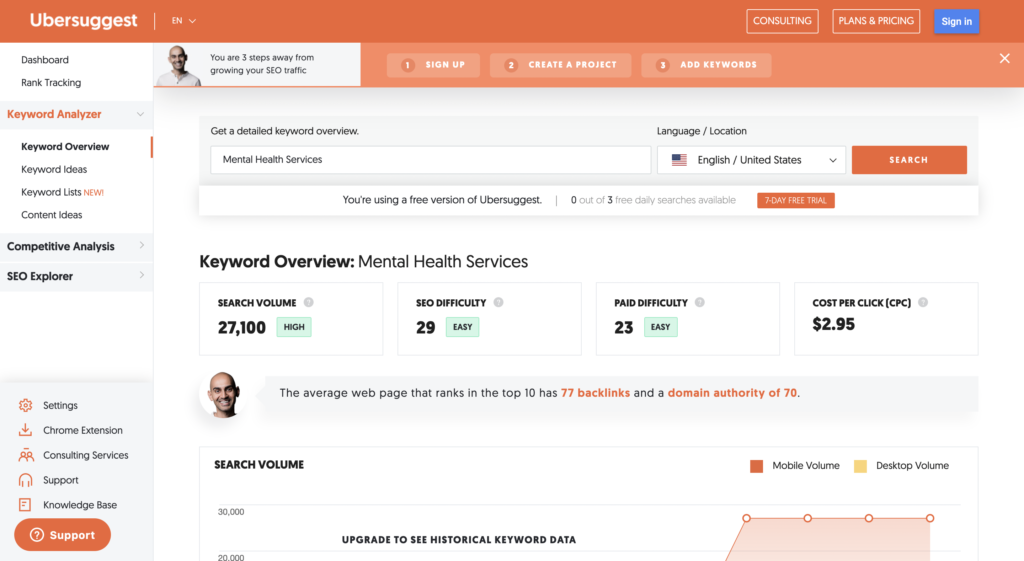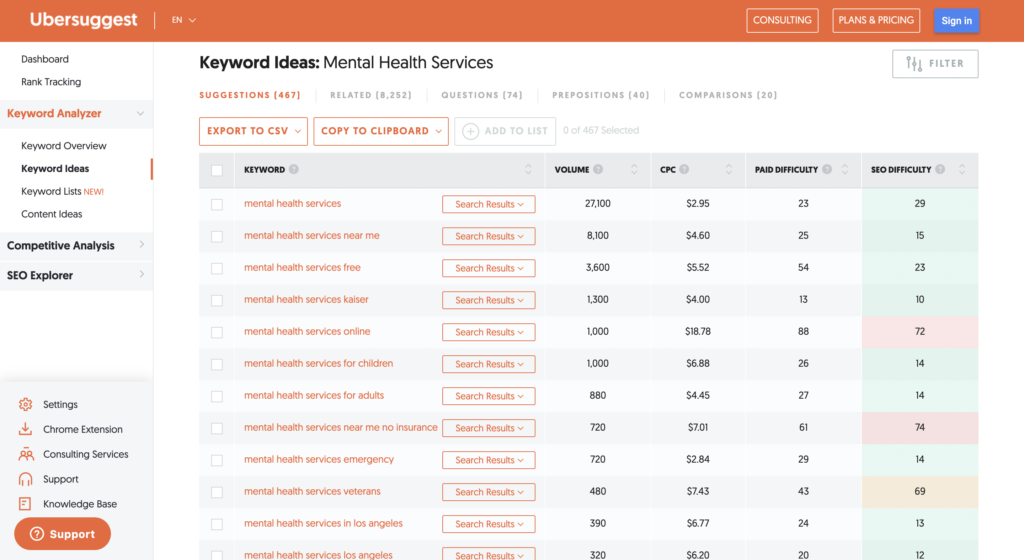Today we’re going to focus on keyword research, which is one of the top ranking factors for SEO.
According to HubSpot, “Keyword research is the process of finding and analyzing search terms that people enter into search engines.” Shorter terms, consisting of one or two words, are more general and typically more difficult to rank for. Longer terms, or long-tail keywords, consisting of three to five words, are typically easier to rank for and lead more qualified visitors to your site.
Analyzing these terms, or keywords, gives you insight into what your target audience is looking for online. Aligning your keywords and content with what your target audience is searching online helps search engines present your audience with your content.
Of course, simply adding keywords into content isn’t enough, you have to use this insight to provide valuable content for your audience. Content marketing is king when it comes to getting found online.
How It’s Done
So, how is it done?
First, we suggest creating a list of terms, abbreviations, topics and phrases that are relevant to your industry. This will give you a starting point for building your keyword list. For example, if you were operating in the mental health industry, your list of terms could include:
- Mental Health
- Mental Health Services
- Mental Healthcare
- Mental Health Counselor
- Mental Health Disorders
- Eating Disorders
- Support Groups
- Therapist
- Psychiatrist
- Psychologist
Once you have your list ready, you can begin using a keyword research tool to find other terms your audience is searching for online. Although there are some free tools and trials out there, most tools will require a monthly subscription. We really like UberSuggest from Neil Patel, which allows you three free keywords to research per day and is incredibly user friendly. SemRush and Moz are best-in-class keyword research tools as well and offer a 30-day free trial. Once you choose a tool,you can begin entering the terms from your list into the tool to find monthly search volume, SEO difficulty, paid difficulty, cost per click and other keyword ideas.






